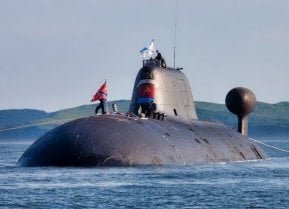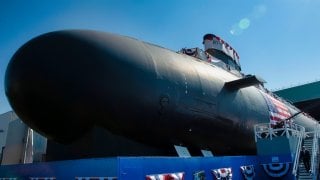The U.S. Navy Faces a New Crisis: Years of Delays Expected for New Warships
The U.S. Navy's ambitious shipbuilding projects, including the Constellation-class frigates, Gerald R. Ford-class aircraft carriers, and Virginia Block V submarines, are facing significant delays.
Summary: The U.S. Navy's ambitious shipbuilding projects, including the Constellation-class frigates, Gerald R. Ford-class aircraft carriers, and Virginia Block V submarines, are facing significant delays.
-These setbacks, highlighted in a Navy review ordered by Secretary Carlos Del Toro, stem from supply chain disruptions, labor shortages, and budget constraints.
-Notably, the Columbia-class ballistic missile submarines, critical to America's nuclear deterrent, are delayed by over a year due to issues like tardy deliveries of essential components and challenges in workforce recruitment at key shipyards. Such delays could compromise the readiness and effectiveness of the Navy's future fleet.
Delays in Ship Delivery Threaten U.S. Navy's Future Fleet Capabilities
The U.S. Navy’s highly anticipated shipbuilding projects all face years-long delays. The upcoming Constellation class of frigates, the next Gerald R. Ford-class aircraft carrier, and the latest Virginia Block V submarines are just some of the vessels impacted by these delays, according to a review ordered earlier this year by Secretary of the Navy Carlos Del Toro.
The report concluded that a range of shortfalls are contributing to the delays, including supply chain issues, labor shortages, and budgetary constraints.
The Columbia-Class SSBN
Designed to replace the Navy’s Ohio class, the Columbia class of ballistic missile submarines will uphold America’s sea-based nuclear deterrent. But the Navy expects the lead ship of the new class, the USS District of Columbia (SSBN-826), to arrive more than one year later than planned.
Manufacturers General Dynamics and Huntington Ingalls Industries (HII) were tasked with constructing the 12-boat class for approximately $130 billion.
As part of the development phase, HII is charged with building what it calls super modules, fitted with specific systems and connections, before shipping these parts to General Dynamics for final assembly. However, according to reports, HII is 13 months behind schedule. To make matters worse, the turbine generators Northrop Grumman is building for the class are not projected to be delivered until 2025.
Constellation-Class Frigates
The Navy’s new Constellation-class guided-missile frigates will conduct air warfare, surface warfare, electronic warfare, anti-submarine warfare and information operations. These are critical capabilities, but the ships are falling behind schedule, with the lead ship of the class expected to be delivered at least one year later than expected.
According to reports, Fincantieri’s Marinette Marine shipyard has undertaken its own review to determine the extent of the issues. The manufacturer’s program executive officer for unmanned and small combatants revealed that the shipyard is having trouble hiring enough welders.
These new warships are based on the Italian FREMM multi-mission frigate, and they are currently sitting at 80% design completion.
Virginia-Class Block V Submarines
The latest Virginia-class iteration will be one of the best underwater vessels in the world once introduced. These highly sophisticated submarines will feature the Virginia Payload Module, equipping the Block V SSNs for seabed warfare operations.
Additionally, the class’ extended mid-body section will store extra Tomahawk cruise missiles and other munitions, increasing the ships’ payload substantially. But the Block V variants are looking at a nearly three-year delay.
All of the Navy’s next-generation projects are important, and frequent delays in production jeopardize the prowess of the fleet.
About the Author: Maya Carlin
Maya Carlin, National Security Writer with The National Interest, is an analyst with the Center for Security Policy and a former Anna Sobol Levy Fellow at IDC Herzliya in Israel. She has by-lines in many publications, including The National Interest, Jerusalem Post, and Times of Israel. You can follow her on Twitter: @MayaCarlin.


